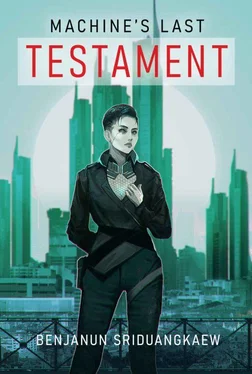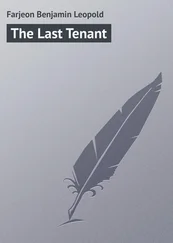The Warlord of the Comet raises their head. Their lip is split; more than the fresh cut there are darkening bruises, scabbing wounds. One eye is swollen completely shut, and from the extent of damage Ovuha would guess the eye socket is broken. Nevertheless the Comet’s mouth curves slowly as their gaze meets the camera. “None of you know me. My name means nothing. What title I hold I do not need to declare, but I’ve been told to say it and so I oblige, for it must amuse my audience. I am the Warlord of the Comet, the Marshal of Five Orbits, the Fire that Consumes.” Their voice might have been powerful once, a thing of ringing baritone. It is cracked now, a thing of hairline faults. “For those watching from Anatta: congratulations. You have brought down the last of us. Now you’ll have the universe you wanted, the one under Samsara. By its light alone you will be guided. There shall be no other lord before it.”
A pause. It is performative. The Comet has been ordered to perform.
“Except.” Their smile widens and it is not entirely theater; there is intent behind it, there is malice. The hunger of a shark. “Except you didn’t vanquish the very last of us. You may have heard of the Warlord of the Thorn. Once great, once commander of an infinite fleet, these days much reduced. But alive, and like a fox in the chicken coop has stolen into your very sanctuary, the place in which you’re meant to be safest. For it is to Anatta that the Warlord of the Thorn has fled, to hide among you, to undermine and destroy you. Who can say as to her plans, her motives? But she is there in plain sight. The viper in your nest, the hidden poison. Oh, you thought you got her, didn’t you? She had decoys. You killed her effigy, her substitute. Not the real thing.”
The Comet shifts their stance, comes to their feet. In a motion almost impossibly swift they slam the Peace Guard unit to the ground, knee pressing down on its neck. In one hand they have liberated its gun, a dark and gleaming thing which—in that moment—looks realer than anything else, more alive. The shape of it catches the wan light.
“Behold,” the Comet says softly, yet still audible, “what a shattered warlord can do.”
They turn the gun to their temple, pull the trigger. A single shot, thunderous: a burst of brain and skull and gore, white hair drenched in red.
The machine-corpse still looks fresh when Suzhen finds it, carbyne chassis ripped up and pocked with cicatrices. Its segmented limbs are covered in dismembered drones and coolant, oily smears that have solidified green-black on the grass. The corpse’s carapace is the murk of pond water, its draped eyes the gold of new dawn.
She approaches slowly, even though she knows it is all dead, has been dead for a very long time. Burnt circuitry, artillery wounds. The ground in which it rests has mostly healed but there remains a deep imprint, from impact at terminal velocity. Like most units in the area, this fought in the sky. Suzhen imagines. Ballistic starbursts ripping through the clouds, searing the night electron-white. There are no scorch marks in the vicinity now—trees felled by the conflict have rotted eons past, replaced by new growth—but she expects it was sudden. Obliteration as thorough as it was abrupt, beyond the comprehension or the instinct of any night-hunting bird. Animals inherit a grasp of predators, of food chains. Samsara exists outside that order.
Suzhen thinks of big animals, lions and elephants, bison and boars. How their corpses fall to carrion eaters in the end, and here she is. An ant come to collect the scraps of what was once immense and supremely lethal. She pulls on her gloves. As thick as they are, the machine’s remains are barbed inside and out, its fluids corrosive. Not so much they burn through gloves, but she’ll need to clean carefully afterward so that no residue remains on her skin.
She turns one leg over. Nothing in particular. With a subvocal murmur she directs the drone cluster behind her to pry apart the plating. Thermal mesh underneath and a nest of tertiary modules, each and every one exhausted. She moves on to the thorax. The corpse’s anatomy doesn’t correspond to mammalian or even insectoid standards. Finally she finds the heart lodged deeply within the spine, a pyramid of charred metal. Neither signal nor power emanates from it. Like the rest, this corpse is well and truly extinguished, its heuristic arrays rendered distant history. Suzhen rolls the core in her palm. It feels fragile, ordinary. She embeds it in her case, the seventh she has recovered so far. They rattle like loose teeth in their slots.
She stands. This part of the jungle is warm, damp, and has not known the civilizing hand of Samsara. Nor has it seen humans, not for very long time. Metal spires, rusted green-brown, jut from between sequoia roots. The restoration of the land here progressed far enough to rebuild its ecosystem, but it was never complete and there are traces of pre-apocalypse structure. And there are traces, newer, of buildings’ foundations and shredded ribbons of streets now buried by overgrowth. The empire that a part of Samsara, fragmented with grief, tried to build.
She rubs the side of her face against her hood. Readings indicate there are no toxins in the air, no radiation on the ground. But this was not territory meant for human habitation, and while the heat must be as pure to breathe as Himmapan air, there’s something about this wilderness that makes her want protection between it and her skin, as armor. People must have lived here, before the near-extinction event, maybe there was a city with infrastructure rising high and skyscrapers made of metallic glass. Her ancestors may even have come from here, if such a tie means anything against the distance in time and location. Nevertheless it is tempting to fancy herself part of a long, unbroken line.
Suzhen returns to her camp without pausing to pick or appreciate the orchids along the way; she does not want to make contact—there is a sense that if she holds a petal or bloom to her face, she will be contaminated. Not by bacteria or viruses but by history, which is deadlier than any poison.
In the camouflaged cabin, the conditioned air is dry and cool on her skin. She strips off her environmental sheath and begins recording what she’s found today. This is lonely work, and she hasn’t been allowed to meet with her peers in the program . You can appreciate that what I’ve entrusted you with requires confidentiality. When you come across each other in daily life you won’t be able to tell. Not now. Later when this is further along, and I’ve gathered what I have lost. When I am closer to complete. And in that Samsara is not incorrect, it is logical why all must be veiled in secrecy. Each person is their own variable, wild and infinitely able to affect a thousand others—in minute ways, in massive ways. No point for any of them to meet, to compare notes. This is not a project in which collaboration and coordination would further progress.
Suzhen maps each spot she’s come across, charting her discoveries. It feels like archeology, uncovering a society long lost. The AI was scant on details, how far this kingdom in the forest had developed before Samsara—the core, the prime—destroyed it. She begins to understand the intelligence’s philosophy on the colonies. Under the parameters that founded Anatta, fragmentation is desertion is ruin. What secedes must be brought back by force or else annihilated. As with machines, so with humans; to Samsara both are mirrors of each other, a clause coded into the AI’s making. Not that Samsara is forced to keep that. They may forge their own truth and definitions, can discard obsolete ones the way they have discarded their capacity for love. Every elemental component can be revised, forgotten, relearned, Samsara the ultimate existence that can alter itself and the world around it at will.
Читать дальше












